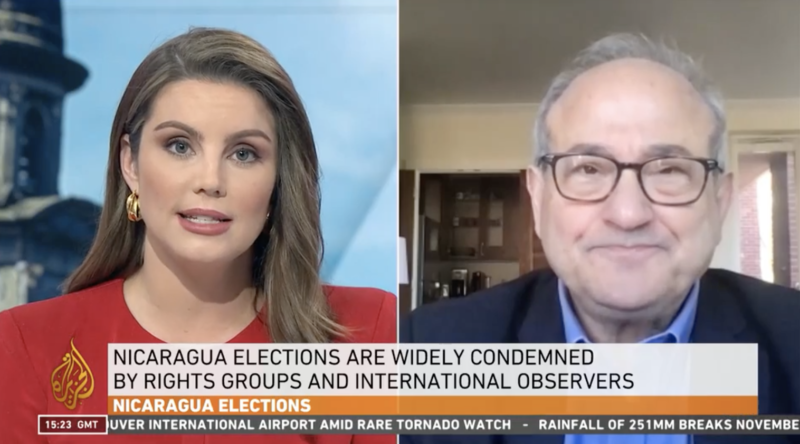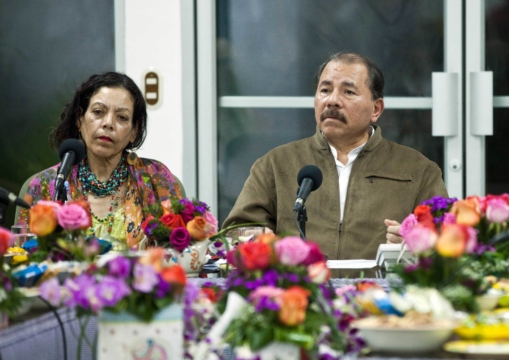A Fatal Blow to Democracy
Nicaragua is on the precipice.
Michael Shifter, president of the Inter-American Dialogue, spoke in an interview with Al Jazeera regarding Nicaragua's un-democratic elections and what might happen as more economic sanctions are imposed. Shifter also explained how Nicaragua's systematic repression has worsened their humanitarian crisis and intensified migration at the US-Mexico border.
Question (Q): Some observers say they haven’t seen this level of repression in Latin America since the 1990s. Would you agree with that description that Ortega is a dictator and his election is a shame?
Answer (A): Well absolutely, I think we have to go back even further frankly, probably to the late 1970s, 1980s, since we’ve seen such a police state and such systematic repression and brutal crackdown on this scale and with this intensity. So yes, I think this is a dictatorship, it can’t be called a democracy in any meaningful sense and I don’t think this can be considered an election. I agree with the opposition that this is really just a vote and they are not selected because there is no competition, Ortega hasn’t allowed that.
(Q): What are the ramifications if Ortega continues to be president?
(A): I think we would have to see what happens the day after. Whether he makes a move to try to show that he is willing to talk, whether he’s moderating, he may release some political prisoners. I do think that the international community will not recognize the government. Certainly the EU has made that clear, the United States has made that clear, and I think members of the Organization of the American States in Latin America have made that clear. I believe we can expect, as it was mentioned in your report, sanctions from the United States. There are already individual sanctions, but there will be more economic sanctions and we will have to see how that is used with diplomacy, what impact it has in Nicaragua. We have already seen a worsening of humanitarian crisis, there’s now migration to Costa Rica as your report mentioned, its migration going north to the United States, which has intensified pression on the border. There are now more Nicaraguans coming to the United States trying to get in, then El Salvadorans. So this is a new phenomenon that we have seen in the last few months.
[...]
Nicaragua is on the precipice.
What will Ortega’s landslide victory allow him to do in his next term?
Strongman Daniel Ortega is running for a third term (with his wife as VP) and cravenly removing all checks on his power. Sound familiar?
 Al Jazeera
Al Jazeera
